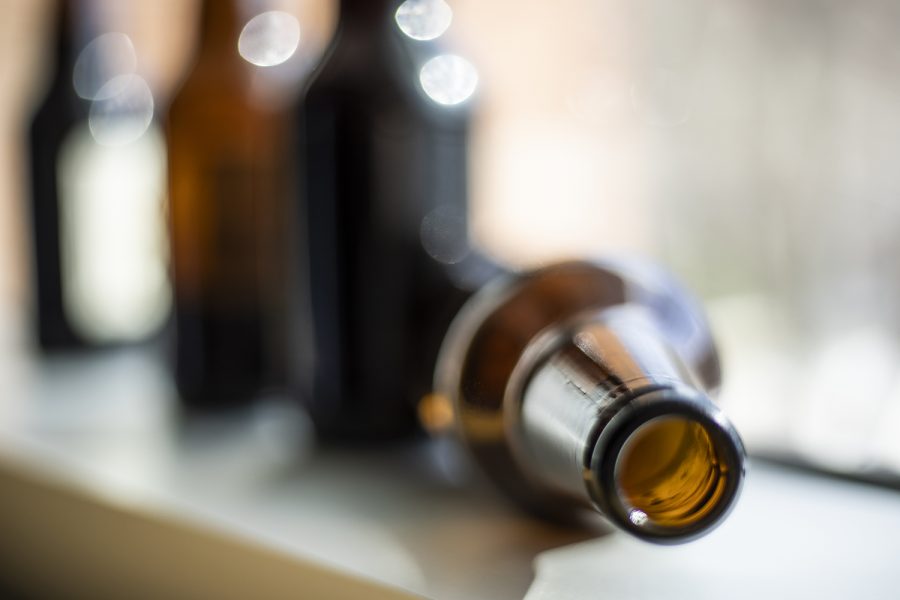Opinion | Alcohol use disorder needs to be addressed better by the UI
In order to fix the campus drinking problem, the UI must inform students about alcohol abuse disorder and what resources there are for it
Ryan Adams/ Photo Illustration
February 8, 2021
It’s no secret that the University of Iowa has a drinking problem. We were one of the top 20 party schools nationwide until 2019.
Iowa City plans to open its first non-alcoholic bar, which aims to be a space for students who do not drink alcohol to socialize.
The bar is a great step in creating a space for non-alcoholic socializing, adding to the efforts of existing student organizations such as CAB, and the UI should continue its efforts to reduce alcohol use.
Alcohol-use disorder is a mental illness, and the UI should continue providing resources, and advertise them more effectively for students so they are aware of and can receive help.
In a recent interview with The Daily Iowan, Licensed Independent Social Worker for UI Counseling Service Heidi Schmitt said the service sees an average of 30 to 50 students per semester for substance-abuse disorders.
Schmitt is also co-coordinator of the UI Collegiate Recovery Program that provides therapeutic resources for students who are currently in or considering recovery from substance abuse.
“The CRP looks to support students who are ready to make or have started making changes to their substance abuse,” Schmitt said.
The UI needs to better advertise the College Recovery Program as a resource for students who need to recover from alcoholism. This could decrease the amount of excessive drinking on campus by showing students there is help for them if they need it.
National reports show the pandemic is correlated with an increase in substance abuse. Resources for students with alcohol-use disorder must be more actively advertised and broadcast as interactions on campus are reduced or go virtual. In addition to the College Recovery Program, there are a variety of resources like Alcoholics Anonymous Iowa City.
“I believe students are using more substances and not getting the help they need,” College Recovery Program Co-Coordinator Karen Grajczyk-Haddad said.
Grajczyk-Haddad said a major problem that students with alcohol-use disorder have is shame and not realizing it as a problem. Schmitt said students often do not realize they have a problem until there are extreme negative consequences like an Operating While Intoxicated charge.
Characteristics of alcohol-use disorder include drinking more than intended, loss of control over the amount of alcohol consumed, and the need to drink more alcohol in order to be effected the same way.
The UI can help these students by having a mandatory class where students learn about what alcohol-use disorder is and what resources are available for it. Alcohol is discussed during OnIowa! — a freshman orientation class— but the message would get across better if students also had a semester-long class where the ideas were reinforced.
If the university implemented this, then students may be better able to recognize the signs of alcohol-use disorder should they or others develop them. They will also know their options of where to turn for help on campus.
The course would hopefully teach them that alcoholism is in fact a mental illness and how someone suffering from it deserves compassion instead of judgment. Grajczyk-Haddad said she would love to work with the baristas at the non-alcoholic bar and have them recommend the Collegiate Recovery Program to students who go there and are in recovery.
While a non-alcoholic bar will create a safe space for socialization specifically, the university should provide more ways for students to become knowledgeable of alcohol abuse disorder and what resources there are for it.
Columns reflect the opinions of the authors and are not necessarily those of the Editorial Board, The Daily Iowan, or other organizations in which the author may be involved.




